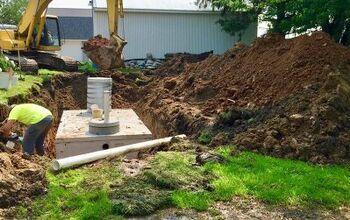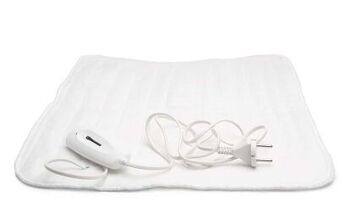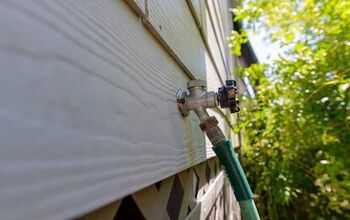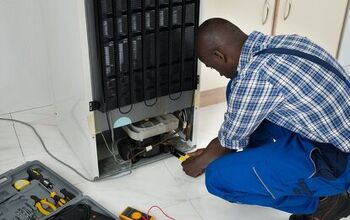What Are The Pros And Cons Of A Washer Without An Agitator?

Washing machines seem like a fairly stable invention, right? Dirty clothes go in, clean ones come out. Simple. Though the concept is simple, innovation never stopped. For example, let’s take a look at agitators. Once not too long ago, they were a staple of the washing machine design. Nowadays, you can find machine models without agitators. But, are they really all they’re cracked up to be?
Washers without agitators use impellers to clean laundry. These machines tend to be more energy-efficient, requiring less water and electricity to power. Since they do not have a bulky agitator, you can fit more clothes in there. However, many people find that they don’t wash clothes as well as agitator-powered washers.
If you are wondering whether you need an agitator in your washer, you should try to understand what it can and cannot offer you. Our article will help you weigh out the pros and cons of having an agitator-free washing machine.
Do You Need Appliance Installation or Replacement?
Get free, zero-commitment quotes from pro contractors near you.

Before We Begin: A Quick Note About Our Washing Machine Article
We’re going to assume, for the sake of this article, that you are not going to go for a front-loading washer as an agitator-free choice. This is simply because this debate tends to come up when you’re talking about agitators versus impellers. Those are both top-loading mechanisms for washers, so we’re sticking to the top-loader assumption.
How Do Washing Machines Function Without An Agitator?
The one thing that people tend to realize about agitators is that they perform a major function for their washers. Agitators are used in top-loading washers as the primary stirring method for clothing. Without an agitator, your washing machine has to have a way to stir and scrub those clothes.
This means that you have two options if you want to have a washer without an agitator. You can either choose a front-loader washer with a rotating drum, or you can have a washer with an impeller. An impeller has a rotating mechanism that is smaller and flatter than an agitator. Impellers use other clothing to rub against your clothes, giving a gentler spin.
The Pros And Cons Of An Agitator-Free Washing Machine
Now that we went through the basic mechanics of the things inside your washer, let’s get to the real meat of this article. Take a look at the pros and cons of a washer with an impeller…
The Benefits Of A Washing Machine Without An Agitator
Getting a washing machine with an impeller means that you will usually have an HE washer, also known as High Efficiency. Here are the benefits you get from this type of machine:
- They use less water and electricity. They are High Efficiency because they work well. Considering the prices of water and power going through the roof, it’s not surprising that people flock to these machines.
- Oh, and they also use less detergent. You will need HE detergent, sure, but you will use less of it every cycle. Impellers don’t require much soap to work well.
- Washers without agitators offer more space for bulky items. Agitators are large, cone-shaped objects that take up a bit of space. Without them in the way, you can fit more clothing. This makes for an easier time cleaning your pillows and comforters.
- It’s gentler. Since the agitator’s not spinning everything every which way, you get a lighter touch on your delicates.
- They spin and dry faster. This can be a good thing if you just need to get a rinse on your clothing.
The Drawbacks Of A Washing Machine Without An Agitator
Agitators have been a staple of the washing machine world for eons for a reason. They tend to eliminate a lot of the drawbacks that come with impeller-based washers. These include the following:
- You might find these to be a bit TOO gentle. Agitators are ideal for people who have tons of clothes marred by crazy dirty areas. For example, if you are a mechanic at an oil change shop, then you may need an agitator simply because impellers can’t scrub that hard.
- If you go in areas where a lot of sand exists, your impeller might break faster. Impellers do not work well with sand and can actually break down. Sand has a tendency of getting into impellers’ gears. This grinds them down, causing a need to replace the impeller. Beachgoers, you have been warned!
- Washing times might be longer. The drying and draining cycles are shorter, but it will take a longer time to get the clothes actually clean.
- Some impeller washers have a tendency of trapping air in your load. This doesn’t sound bad, but the air tends to sit with water. This can lead to a musty smell in your washer. If too much air and water sit in your machine, you may also end up with musty clothing.
- It can be hard to find detergent for HE washers. This isn’t always an issue, especially if you live in an area that’s famous for being eco-friendly. However, if you live in a place like Fargo, you might have a bad time.
Do Washers Without Agitators Cost More Than Washers With Agitators?
It all depends on the washing machine as well as the brand that you want to get. For the most part, you won’t notice that large a difference between the prices. Impeller washers and agitator washers both run between $400 to $1,500 in most cases. What makes a larger difference between prices is the add-ons that you can get.
With that said, there is anecdotal evidence suggesting that impeller washers are going to be slightly more expensive upfront than agitator washers. Though they’re more expensive in the start, they tend to even out thanks to the energy savings that they offer as the years pass. In this way, it’s kind of a trade-off.
How Long Do Impeller Washing Machines Last?
Impeller washing machines generally do not have a seriously different lifespan from standard agitator washers. So, this much doesn’t change. A typical washing machine will last anywhere from 7 to 12 years on average, assuming that you maintain them like most others do. The average lifespan of an impeller washer is 10 years.
Important Notes About Using A Washer Without An Agitator
Agitator washers are the standard as far as washing machines go. This means that it’s normal to be used to using them instead of an impeller-based washer. If you want to use a washer without an agitator, then you need to be aware of the minor differences that you have to deal with. These issues below tend to be the biggest changes you have to get used to:
- You’re going to have to switch detergents. Unless you already use High-Efficiency detergent for your laundry, you’re going to have to go shopping for new detergent. If you are a person with sensitive skin, this may lead to a bit of a hunt before you find one that doesn’t cause a breakout. Always check for the “HE” on the label!
- Prepare to put less detergent in, too. If you are worried about having to spend extra cash to get more detergent, don’t be. You will be able to get a lot more use out of each detergent bottle.
- Take extra time with your washes. If you are new to impeller washers, you might find that the actual washing and mixing cycles tend to take longer. While they can dry and rinse faster, it’s still not something that totally cancels out the length of time it takes to scrub and wash.
- Remember that tougher stains may require a pre-soak. If you’re used to agitator washes, then you may need to start soaking clothes that you otherwise wouldn’t soak. Since impellers can be a bit too gentle for materials in need of a hard scrub, such as really greased-up jeans or painted clothing.
Are Washers Without Agitators Worth It?
Honestly, they usually are. While they are not the most common type of top-loading washing machine on the market, they are starting to get more popular. If you have a typical load of laundry, then you will find impeller washers to be a great pick. On the other hand, if you want to wash tons of clothing that have heavy-duty stains, an agitator is a must-have.
Though many of us aren’t quite ready to say goodbye to agitators quite yet, it’s clear that times are changing. People are starting to realize how important it is to conserve water. In many parts of the world, energy prices are going through the roof. By having an impeller washer, you’re going to find that you’ll save a lot more in the long term. Besides, with improvements in tech around every corner, it’s clear you’ll learn to love them in time.
Do You Need Appliance Installation or Replacement?
Get free, zero-commitment quotes from pro contractors near you.

Related Questions
What type of washers last longer, front-loading or top-loading?
Though both types can last up to 20 years with proper care (and the right brand), the truth is that front-loading washing machines tend to last marginally longer. Front-loaders tend to last around 14 years on average, with many reaching past the age of 18. Top-loading machines last slightly less, with an average lifespan of up to 10 years. So, if you’re worried about lifespan, you may need to stick to front-loaders.
How many times can I use a washing machine in a single day?
Most washing machines will need at least half an hour to an hour of cool-down time before they can run again. This is just to prevent wear and tear on their engines, of course. If you really needed to, you could technically use them as much as you want. However, you probably should take a look at how many loads your septic tank can handle before you do.
Can using a washing machine with an agitator be against building codes?
It would be exceedingly rare to hear of a building code that banned washing machines with agitators. However, there’s no telling what you may have in the future. Due to the fact that impellers offer a more eco-friendly engineering outlook, many cities that have water advisories may eventually choose to require them. Even so, we cannot tell the future nor expect you to figure that out yourself.The best thing you can do in this case is to check out what your local codes say.

Ossiana Tepfenhart is an expert writer, focusing on interior design and general home tips. Writing is her life, and it's what she does best. Her interests include art and real estate investments.
More by Ossiana Tepfenhart



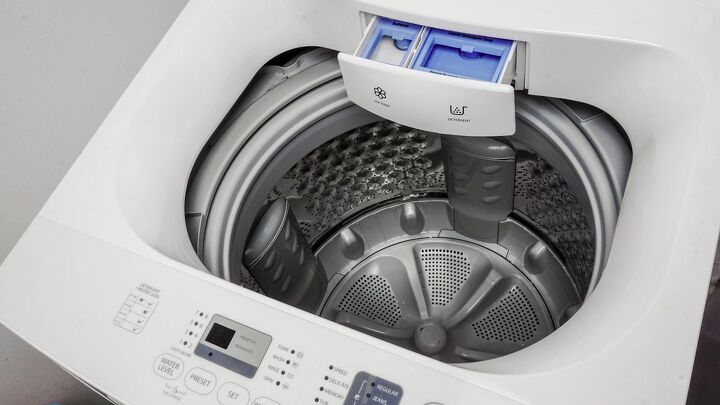








![10 Best Electric Pressure Washers – [2022 Reviews & Guide]](https://cdn-fastly.upgradedhome.com/media/2023/07/31/9070600/10-best-electric-pressure-washers-2022-reviews-guide.jpg?size=350x220)





